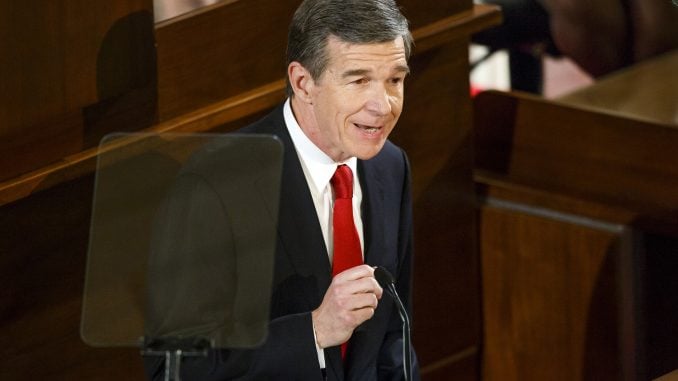
RALEIGH Gov. Roy Cooper has used his veto pen once again, this time to undo legislation limiting the amount of damages that can be awarded in certain nuisance claims.”The agriculture and forestry industries are vital to our economy and we should encourage them to thrive,” said Cooper leading off a statement explaining his decision to veto the bill. “But nuisance laws can be used to protect property rights and make changes for good. We used nuisance laws to force the Tennessee Valley Authority to stop air pollution from flowing into North Carolina and we won damages to improve air quality.”Special protection for one industry,” continued the governor, “opens the door to weakening our nuisance laws in other areas, which can allow real harm to homeowners, the environment and everyday North Carolinians.”House Bill 467 worked its way through the N.C. General Assembly last month as more than two dozen relevant nuisance claims worked their way through federal courts in the Old North State. It limited the amount of damages that could be awarded in specific nuisance claims amid a lack of precedent on the issue as cited by the presiding judge in the federal case. The legislation elicited fiery debate on both sides of the aisle as lawmakers struggled with passing a law that might affect ongoing legal proceedings.Sen. Brent Jackson (R-Sampson), a produce farmer from Autryville, said that the governor’s latest veto demonstrates a pattern of behavior of refusing to stand up for N.C. farm families, “I am incredibly disappointed in Gov. Cooper for once again turning his back on family farmers and rural North Carolina and putting out-of-state trial lawyers first,” said Jackson in a press release.In late April, the Cooper administration withdrew from a lawsuit challenging the EPA’s Waters of the U.S. Rule a regulation that the agriculture industry said was a gross overreach by the federal government.According to insiders, more than $100,000 in lobbying fees were deployed in a 24-hour period as the legislature wrestled with the bill’s legal implications and questions about its constitutionality.Ultimately, an amendment was adopted that excluded the current court cases from the legislation and the bill was passed. In the final vote, the N.C. House passed the measure with 74 votes, a margin that would provide for an override of Cooper’s veto if legislative leaders decide to overpower the governor once again.This marks Cooper’s fourth veto since taking office, three having been overridden by a Republican super-majority in the state legislature.



